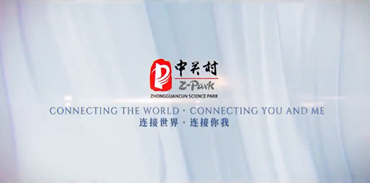Tsinghua incubator releases potential of tech startups
Tsinghua University - one of the most prestigious schools in China with a century-long history - has developed an efficient system that helps to commercialize the technological achievements.
"Since the mid-1980s, we have accumulated a lot of experience in dealing with incubating technological projects, from the very beginning stages of selection, to nurturing it and finally to its exit," said Zhao Yanlai, vice-president of Tsinghua Holdings and general manager of its innovation center. He made the comments during his visit to the 2017 China High-Tech Fair in Shenzhen, which he attended as an exhibitor. The event ran through Nov 16 to 21.
The university-funded Tsinghua Holdings, with a registered capital of 2.5 billion yuan ($376.8 million) in September 2003, has a vision to become China's leader in the university-backed industry, as well as a global model for others. It set a benchmark for industry-university-research integration and aims to remain a giant incubator, investor and operator of innovative startup businesses.
"We have developed several criteria for picking up targeted projects. They must have advanced technologies that are leading in the industry, must satisfy the social demands of the time, and must have a distinct business value," Zhao said.
When a project develops, the management team and the innovation team need to pay attention to the change in their roles in the project, he noted.
"It's crucial to adjust the roles of the entrepreneurs and scientists at different stages of the project. Otherwise, it might lead to failure, judging from our experience," Zhao said.
In the startup stage, the scientist team should play the leading role in improving the products or services to meet the market needs. But at a more mature stage, the management team should stand in to oversee the production, marketing, after-sales services and technical support, according to Zhao.
As a result, Tsinghua Holdings has commercialized more than 40 key national research achievements and made technological breakthroughs in more than 60 projects.
It has a controlling stake in dozens of companies, which are mainly in such areas as integrated circuits, energy, environmental protection and life sciences, innovation services, the innovative industry, finance and online education.
More than 10 companies that Tsinghua Holdings funded have gone public on domestic and foreign stock exchanges.
"When our businesses get bigger, most of the elements used to foster the innovative startups can be fulfilled internally, such as financing, guarantee services and marketing," Zhao said.
This allows Tsinghua's investment in the new projects to be exited internally, for example, to be acquired by existing companies, he added.
"For the most promising projects that are popular in the capital markets, we will finally develop them into new listed companies, such as Beijing GS Technology," Zhao said.
The company was spun off from the university's Center for Public Safety Research. It provides public safety and security technologies, and emergency management solutions to governments and agencies. It listed on a stock exchange in 2016.
"It's not easy to commercialize research achievements and we have encountered failure before. However, as a wholly owned subsidiary of Tsinghua University, it's our mission and responsibility to consistently promote innovation and we will stick at it," Zhao noted.

